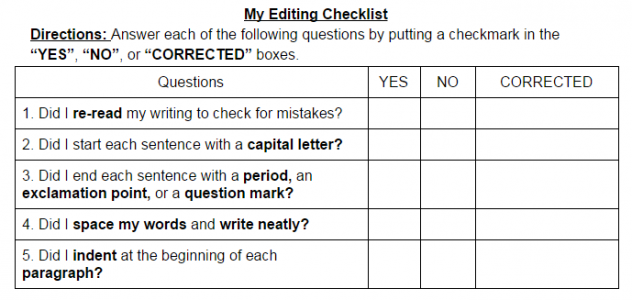Poetry
As a class, we were focusing our study on the following poetry terms and concepts: imagery, simile, personification, alliteration, rhyme, and rhythm. We had written examples of simile poems, alliteration poems, and quatrain poems, as well as haikus and acrostic poems earlier in the year. We would have completed our study by writing examples of name poems (acrostic poems), reviewing and practicing writing haikus, and studying and writing limericks. Below are some suggested lessons and activities that explore these concepts, as well as a final poetry project that students would have completed:
Other Writing Tasks
We would have spent the majority of May and June focused on finishing the above poetry tasks and completing some non-fiction writing tasks as part of our Novel Study on “The Mouse and the Motorcycle” (see Reading page). When finished the above, we would have continued to provide students with the opportunity to continue writing and editing longer pieces of writing in their POWER Writing Books. One resource that we would have used is WriteAbout’s “Video Writing Ideas.” These short videos are a great way to get students’ excited about writing. The ideas allow students a lot of freedom and creativity in their responses. We have already used, “Should Schools Ban Junk Food?” and Ms. McNeil’s class loved using, “Design the Ultimate Tree House.” Be sure to check the remaining videos out if you want to keep writing over the summer!
WriteAbout – Video Writing Ideas
Below is the editing checklist that students’ have been using when editing their own writing:
News Reports/Newspapers
As part of our Novel Study on “The Mouse and the Motorcycle,” students spend some time exploring newspapers and magazines, and writing reviews, advertisements, and lost-and-found classifieds. In Grade 6, students will spend more time exploring and writing news reports, however, had we completed the tasks above we would have started with the following introduction lessons and activities:
Key Points – News Report (Powerpoint)
Key Points – News Report (Example)
ReadWriteThink – Interactive Printing Press
Recipes
In the past, at the end of the year we have created a classroom recipe book as a keepsake of our time together. Students share a favourite recipe from their home or family. Learning how to write recipes are a great way for students to practice being descriptive while be exact and specific. Some lessons and activities that students can use to practice writing recipes are included below. You can also be creative! Write recipes for more than just food:

